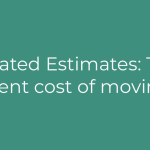In the quest for economic prosperity and enhanced opportunities, individuals and families from across the globe venture towards the Middle East. As an expatriate in this region, you will likely encounter a unique blend of cultural richness, diversity, and economic growth. However, a critical factor that shapes an expat’s life here is their salary level. Understanding how different salary levels can affect your lifestyle in the Middle East is key to navigating the region’s economic landscape and assessing whether it suits your financial goals and aspirations.
Surviving: The Low to Mid-Salary Level
Life in the Middle East can be challenging at lower salary levels, particularly in the more expensive cities like Dubai or Abu Dhabi. One must budget carefully with an average monthly salary of around 15,000 AED. Accommodation, often the most significant expenditure, may need to be in the city’s more affordable, outlying areas. Daily commuting, essential utilities, groceries, and healthcare comprise a substantial chunk of the budget. Recreational activities and dining out need to be limited.
While affordable education options are available, international school fees can be steep. Therefore, ex-pat families on this salary level often feel the financial pinch and may need help to save or afford unexpected expenses.
Surviving a lower-to-middle-level salary in the Middle East requires prudent financial management. This lifestyle often means making conscious decisions to stretch your budget as far as possible, particularly in cities such as Dubai and Abu Dhabi, known for their relatively high living costs.
Accommodation
Housing is typically the most significant expenditure with an average monthly salary of 15,000 AED. To make ends meet, you may find yourself looking for accommodation in the more affordable, outlying suburbs rather than prime city locations. These residential areas often provide decent amenities but need more convenience and glamour of the city centre. The trade-off usually involves additional commuting time and costs.
Daily Expenses
Basic utilities such as water, electricity, and internet, while generally reliable, can also form a significant portion of your budget. Groceries can add up, particularly if you’re partial to imported goods or have specific dietary preferences. However, local markets can offer cheaper fresh produce, and shopping from local brands can help keep costs down.
Healthcare
While public healthcare is relatively inexpensive and of high quality, many ex-pats opt for private health insurance, which can be costly, especially for families. Regular dental check-ups, vision care, and non-emergency medical treatments need to be planned and budgeted for ahead of time.
Education
If you have children, education expenses are another substantial consideration. Public schools usually teach in Arabic and may only fit some ex-pat children. While there are affordable private and international schools, their fees can vary widely and could still be quite steep, particularly for those earning a mid-level salary.
Recreation and Dining
The Middle East, particularly cities like Dubai and Abu Dhabi, is famous for its vibrant social scene, featuring a variety of restaurants and recreational activities. However, regular dining out and recreational pursuits such as attending concerts, cinema, or visiting theme parks might need to be a treat rather than a norm. Budget-friendly alternatives, such as public beach visits, picnics in parks, or home-cooked meals, become more the order of the day.
Savings and Unexpected Costs
Lastly, with the cost of daily living consuming a significant portion of your salary, savings may take a hit. Allocating funds for retirement or emergency expenses can be challenging, and unexpected costs like car repairs or medical emergencies may strain your budget further.
Surviving on a low to mid-level salary in the Middle East is achievable, but it certainly requires careful budgeting, prioritization, and perhaps some lifestyle adjustments. It’s crucial to research, plan, and manage your finances to align with your income, needs, and long-term financial goals.
Thriving: The High Salary Level
Middle Eastern life can be comfortable with a higher salary, say a monthly income of 45,000 AED or more. You’ll likely afford housing in excellent city locations or spacious villas in suburban areas. You can dine in finer restaurants, afford private or international schooling for children, and enjoy a broader range of recreational activities, including memberships to clubs and gyms.
With a higher salary, you can travel extensively, explore investment opportunities, and have a cushion for unexpected costs. The ability to save for retirement or other long-term financial goals also becomes more achievable at this salary level.
Ultimately, your experience as an expat in the Middle East will significantly depend on your salary. It’s crucial to do thorough research and clearly understand the cost of living in your destination city. This will help you manage your finances and shape your expectations about the lifestyle you can afford. Remember, whether you’re just surviving or thriving, there’s always a possibility to grow and move up the ladder as the Middle East offers vast opportunities for personal and professional growth.









